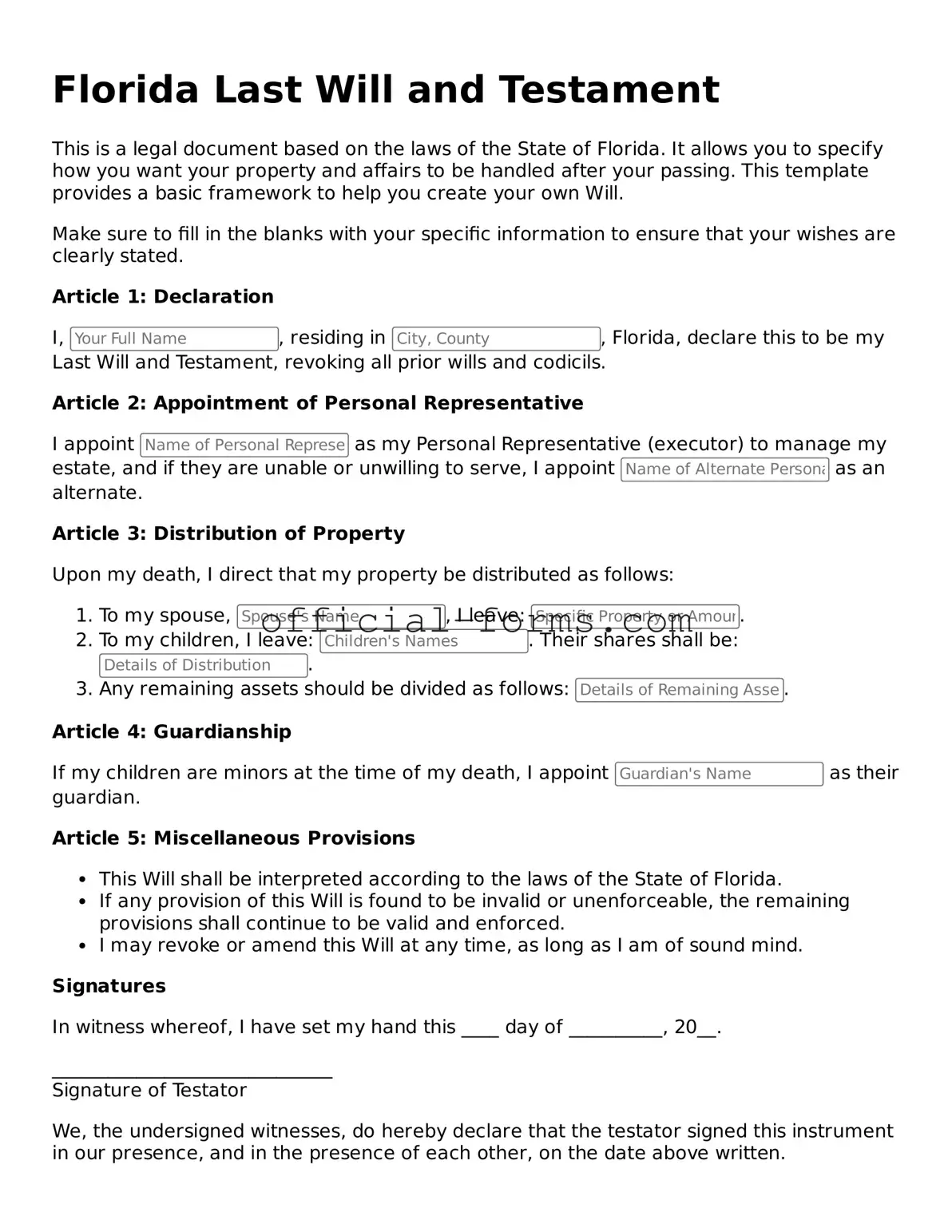Official Florida Last Will and Testament Document
A Florida Last Will and Testament form is a legal document that outlines an individual's wishes regarding the distribution of their assets after death. This form serves as a crucial tool in ensuring that one's intentions are honored and that loved ones are cared for according to their preferences. Understanding how to properly complete and execute this form is essential for anyone looking to secure their legacy.
Open My Last Will and Testament Now

Official Florida Last Will and Testament Document
Open My Last Will and Testament Now
Don’t leave your form incomplete
Finish Last Will and Testament online quickly from start to download.
Open My Last Will and Testament Now
or
➤ PDF
